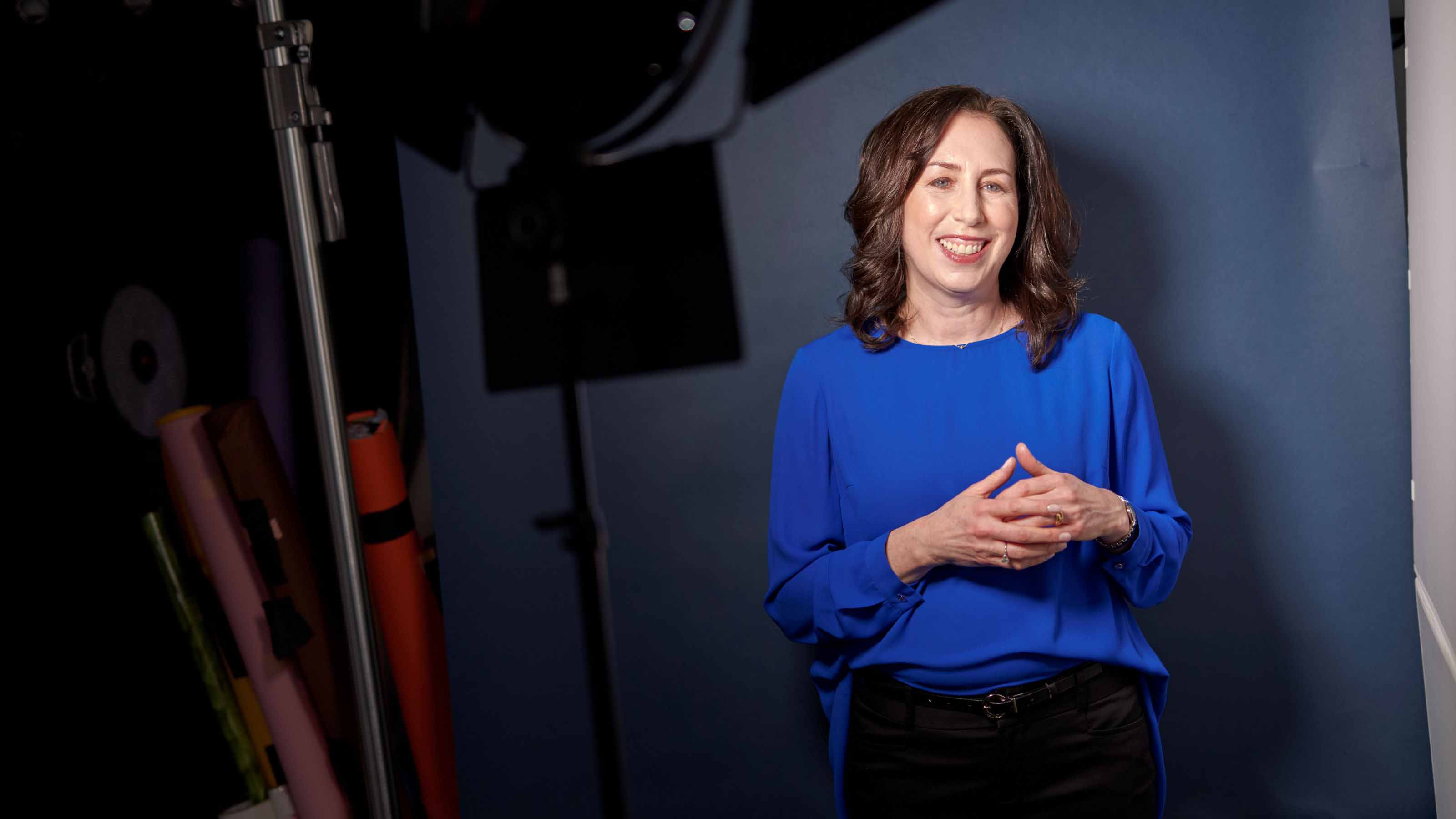A Four-Step Financial Guide to Your 20s
Get on the road to financial success before you reach age 30.

Profit and prosper with the best of Kiplinger's advice on investing, taxes, retirement, personal finance and much more. Delivered daily. Enter your email in the box and click Sign Me Up.
You are now subscribed
Your newsletter sign-up was successful
Want to add more newsletters?

Delivered daily
Kiplinger Today
Profit and prosper with the best of Kiplinger's advice on investing, taxes, retirement, personal finance and much more delivered daily. Smart money moves start here.

Sent five days a week
Kiplinger A Step Ahead
Get practical help to make better financial decisions in your everyday life, from spending to savings on top deals.

Delivered daily
Kiplinger Closing Bell
Get today's biggest financial and investing headlines delivered to your inbox every day the U.S. stock market is open.

Sent twice a week
Kiplinger Adviser Intel
Financial pros across the country share best practices and fresh tactics to preserve and grow your wealth.

Delivered weekly
Kiplinger Tax Tips
Trim your federal and state tax bills with practical tax-planning and tax-cutting strategies.

Sent twice a week
Kiplinger Retirement Tips
Your twice-a-week guide to planning and enjoying a financially secure and richly rewarding retirement

Sent bimonthly.
Kiplinger Adviser Angle
Insights for advisers, wealth managers and other financial professionals.

Sent twice a week
Kiplinger Investing Weekly
Your twice-a-week roundup of promising stocks, funds, companies and industries you should consider, ones you should avoid, and why.

Sent weekly for six weeks
Kiplinger Invest for Retirement
Your step-by-step six-part series on how to invest for retirement, from devising a successful strategy to exactly which investments to choose.
I recently celebrated my 29th birthday. Well, “celebrated” might be an overstatement considering that being this close to hitting 30 gives me a bit of a fright. Don’t get me wrong -- I don’t think of myself as old (claims that 40 or 50 is the new 30 remind me that this is an attractive age to be). But my next birthday is undoubtedly a milestone that will commemorate a more official entrance into adulthood -- complete with all the daunting responsibilities.
So, before I hit my three-decade mark, I want to review four important steps we should all take in our twenties to grow up and reach financial glory. And if you can suggest any other tips (or you just want to wish me a happy birthday), please do so in the comment box below.
1. Find your career path. Obviously, having a source of income tops this checklist. But by the time you hit 30, you need more than just a job that pays the bills; you ought to have a career, or at least be on track to get one.
From just $107.88 $24.99 for Kiplinger Personal Finance
Become a smarter, better informed investor. Subscribe from just $107.88 $24.99, plus get up to 4 Special Issues

Sign up for Kiplinger’s Free Newsletters
Profit and prosper with the best of expert advice on investing, taxes, retirement, personal finance and more - straight to your e-mail.
Profit and prosper with the best of expert advice - straight to your e-mail.
If you’re still in school, remember that, as much fun as college may be, your primary reason for being there is to prepare yourself for gainful employment. Make sure you learn some marketable skills before graduation day (excellence at “flip cup” does not count) and hone those skills throughout your twenties. This doesn’t mean everyone has to study accounting, business administration or computer science, which are among the majors most likely to land you a job right out of college, according to the National Association of Colleges and Employers. For example, I earned a B.A. in English -- often (and I’d say unfairly) dubbed a “useless degree.” But I complemented the comprehensive reading and writing skills I learned from my major with additional coursework in math, statistics and economics. Put that all together and ta-da: I’m now happily starting my career as a personal-finance writer.
If you’re already working, are you in a field you can picture yourself continuing in for the next three, five, ten and 20 years? If not, you need to start looking for a career that works for you. (Just don’t jump plane the Steven Slater way – see Quit Your Job the Smart Way.) Here are a baker’s dozen worth of choices: 13 Careers for the Next Decade.
Once you get started in your choice career, figure out the track you want to follow. What’s the next step up from your current position? How long has it typically taken others to get there? What salary and benefits come with that role? Of course, as this recent recession taught many of us, no matter how well you plot your career path, you may be forced to take some detours. Still, knowing your desired destination will certainly help you navigate through those difficult times.
2. Build an emergency fund. As a responsible adult, you should abide by the same motto as any good Girl or Boy Scout: Be prepared. In case the unexpected happens, you should always have enough cash on reserve to cover at least three to six months’ worth of expenses. Keep it in a regular savings account, where you’ll have easy access to your funds. You can search BankRate.com for the accounts currently offering the best rates. For example, American Express Bank’s high-yield savings account currently yields 1.3% per year and has no minimum balance or monthly fees. See How Much Cash You Really Need for more about emergency funds.
3. Create a plan to repay your debt. I won’t pressure you to pay off everything you owe before you turn 30. After all, according to Sallie Mae, college graduates left school in 2008 with an average credit-card debt of $4,100, up from about $2,900 in 2004. And 10% of that same graduating class also carried $40,000 or more in student debt, according to the Project on Student Debt, an advocacy group.
But if you’re buried under student loans or crippled by credit-card debt, you need to at least figure out how to tackle it before you turn 30. “With cleaning up debt issues, the most important thing is to have a plan and not just assume it’ll go away,” says Carlo Panaccione, a certified financial planner based in Redwood Shores, Cal. Often, Panaccione encounters people who count on a big future bonus or bump in salary to pay off large debts. “Well, that may never happen,” he says. A better strategy: Set up a schedule and figure out how much you’ll need to pay each month to clear the debt by your target date. For more information on paying off school loans, see Digging Out of Student Debt.
4. Start funding a retirement account. Most people don’t start planning for such long-term goals until they’ve reached their forties, says Panaccione, “and then they panic-save later on.” Gentle readers, be the tortoise: Choose the chill path to savings and take advantage of this 20-year head start. Even if you can afford to put away only a small amount each month, slow and steady can win big.
For example, if you start saving just $150 a month at age 25, assuming an 8% return, you’ll wind up with $527,142 by the time you turn 65. Waiting an extra five years to start saving will cost you $180,766. Even if you crank your savings up to $200 a month starting on your 30th birthday, you’ll only net $346,376 by 65. And if you wait until you’re 40 to start saving $200 a month, you’ll have just $191,473 when you’re 65. Crunch your own numbers with our 401(k) calculator.
Ideally, you’ll want to save much more for retirement -- about 10% to 15% of your income would be best. But exactly how much you’ll need depends on what kind of lifestyle you’re planning for your golden years. For help figuring out a dollar amount, try our Retirement Savings Calculator.
The best place to build your retirement account would be in a 401(k) or a Roth IRA. Both vehicles offer appealing tax advantages, but the employer-sponsored 401(k) may also score you free money if your boss makes a contribution, too. To find out more about these types of accounts, see Why You Need a 401(k) Right Away and Why You Need a Roth IRA.
Profit and prosper with the best of Kiplinger's advice on investing, taxes, retirement, personal finance and much more. Delivered daily. Enter your email in the box and click Sign Me Up.

Rapacon joined Kiplinger in October 2007 as a reporter with Kiplinger's Personal Finance magazine and became an online editor for Kiplinger.com in June 2010. She previously served as editor of the "Starting Out" column, focusing on personal finance advice for people in their twenties and thirties.
Before joining Kiplinger, Rapacon worked as a senior research associate at b2b publishing house Judy Diamond Associates. She holds a B.A. degree in English from the George Washington University.
-
 Ask the Tax Editor: Federal Income Tax Deductions
Ask the Tax Editor: Federal Income Tax DeductionsAsk the Editor In this week's Ask the Editor Q&A, Joy Taylor answers questions on federal income tax deductions
-
 States With No-Fault Car Insurance Laws (and How No-Fault Car Insurance Works)
States With No-Fault Car Insurance Laws (and How No-Fault Car Insurance Works)A breakdown of the confusing rules around no-fault car insurance in every state where it exists.
-
 7 Frugal Habits to Keep Even When You're Rich
7 Frugal Habits to Keep Even When You're RichSome frugal habits are worth it, no matter what tax bracket you're in.
-
 Debit Cards vs Charge Cards
Debit Cards vs Charge Cardscredit & debt Whether sticking to a budget or reaping big rewards, understand whether debit cards vs charge cards are right for you.
-
 Four Smart Steps To Take Before Buying Your First Home
Four Smart Steps To Take Before Buying Your First Homehome Buying your first home can be daunting. Here are four things you need to do years before you start house-hunting to prepare financially for the biggest purchase of your life.
-
 The 15 Cheapest Places to Live: US Cities Edition
The 15 Cheapest Places to Live: US Cities Editionplaces to live Have a look at the cheapest places to live in America for city dwellers. Is one of the cheapest places to live in the U.S. right for you?
-
 Sharing His Path to Success
Sharing His Path to SuccessStarting Out: New Grads and Young Professionals This Native American studied tech in the Air Force and landed his dream job. Now he’s giving back.
-
 PODCAST: How to Find a Job After Graduation, with Beth Hendler-Grunt
PODCAST: How to Find a Job After Graduation, with Beth Hendler-GruntStarting Out: New Grads and Young Professionals Today’s successful job applicants need to know how to ace the virtual interview and be prepared to do good old-fashioned research and networking. Also, gas prices are high, but try a little global perspective.
-
 Preparing for a New Life
Preparing for a New LifeStarting Out: New Grads and Young Professionals While this Afghan refugee waits for resettlement, she is working to bring her family to the U.S.
-
 When It’s Time to Drop Your Parents’ Health Insurance
When It’s Time to Drop Your Parents’ Health InsuranceStarting Out: New Grads and Young Professionals Thanks to the Affordable Care Act, the uninsured rate for twenty-somethings has plummeted.
-
 Financial Planning We Can Afford
Financial Planning We Can AffordFinancial Planning You don't have to be a wealthy baby boomer to hire a financial adviser.